I am watching the processes with htop and I see that child process stays as zombie even though I clean up with waitpid call. Any idea why this might happen?
Thank you very much!
#include <stdio.h>
#include <string.h>
#include <stdlib.h>
#include <errno.h>
#include <unistd.h>
#include <sys/types.h>
#include <signal.h>
void child_signal_handler(int signal) {
printf("Someone is stabbed me with signal %d\n", signal);
}
int main(int argc, char** argv)
{
const pid_t child = fork();
if (child == 0) {
struct sigaction sa;
memset(&sa, 0, sizeof(sa));
sa.sa_handler = &child_signal_handler;
sigaction(SIGTERM, &sa, NULL);
printf("Child is started in busy loop\n");
while (true)
;
} else {
const int mercy_period = 3;
printf("Parent is angry and gonna kill his child in %d sec\n", mercy_period);
sleep(mercy_period);
kill(child, SIGTERM);
// clean-up zombie child process as it is terminated before we can wait on
// it
int status = 0;
while(waitpid(-1, &status, WNOHANG) > 0);
}
return EXIT_SUCCESS;
}
